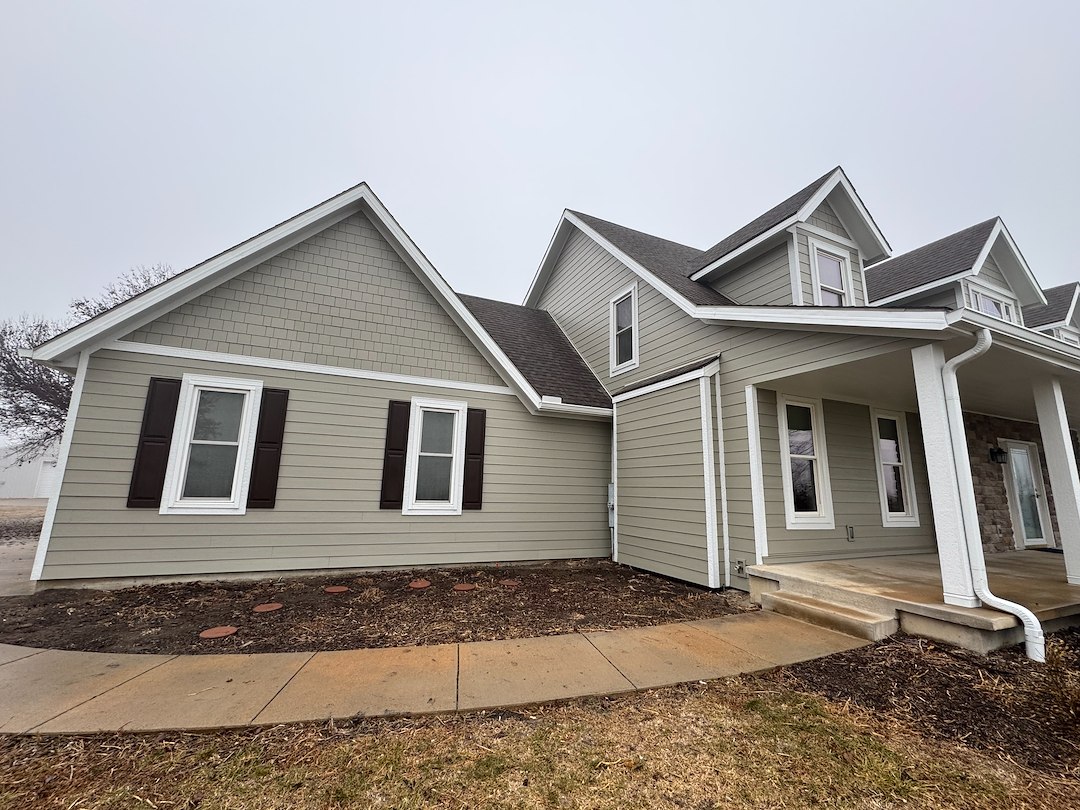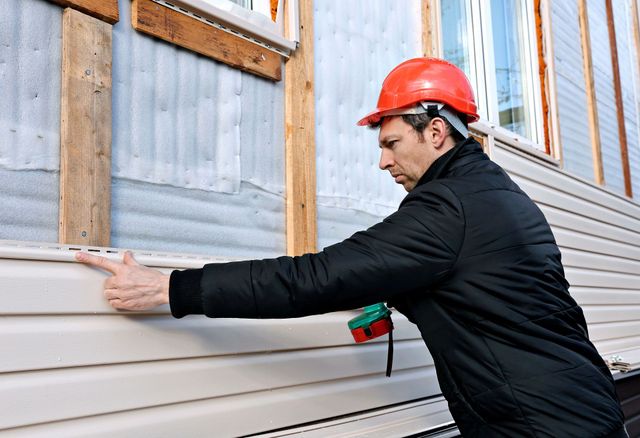Trusted Morris Siding Contractor for Durable and Affordable Home Siding
Trusted Morris Siding Contractor for Durable and Affordable Home Siding
Blog Article
The Essential Overview to the Different Kinds Of Exterior Siding and Their Unique Benefits
In the world of home enhancement, selecting the appropriate exterior siding is a critical choice that influences both aesthetic appeal and functional performance. The selection of materials offered, such as wood, vinyl, fiber concrete, metal, and block, each offer one-of-a-kind benefits that cater to various needs and preferences. Comprehending these differences can considerably boost the durability and worth of a residential or commercial property - morris siding contractor. With so several options to take into consideration, which exterior siding product really stands out for your details job? Exploring these selections can result in educated decisions that straighten with both design and functionality.
Wood Exterior Siding
Wood siding, a popular selection for residential outsides, uses an ageless aesthetic that combines all-natural elegance with architectural integrity. This siding product is offered in different designs, consisting of clapboard, roof shingles, and board-and-batten, permitting home owners to personalize their façade to match their style preferences. Timber house siding is generally crafted from resilient varieties such as cedar, redwood, or yearn, which are recognized for their durability and ability to hold up against ecological stressors.
Among the main advantages of wood siding is its excellent insulation residential properties, which can contribute to energy performance and lower heating expenses. Furthermore, wood siding is biodegradable, making it an eco-friendly alternative when sourced sustainably. Routine maintenance, including paint or staining, can prolong its life expectancy and boost its appearance, enabling house owners to preserve the natural charm of the wood.
Nonetheless, possible downsides consist of sensitivity to insects, rot, and climate damages, necessitating ample therapy and maintenance - morris siding contractor. Regardless of these issues, when correctly cared for, timber home siding can offer a stunning and sturdy solution that boosts the character of a home while offering a warm, inviting atmosphere

Plastic Home Siding
Vinyl home siding has actually arised as a leading choice for property owners seeking a low-maintenance outside alternative that incorporates sturdiness and cost. This versatile material is crafted from polyvinyl chloride (PVC), making it immune to different climate condition, consisting of wetness and UV rays. As an outcome, vinyl siding does not warp, rot, or discolor, ensuring resilient aesthetic allure.
One of the main benefits of vinyl siding is its substantial range of colors and designs, enabling homeowners to attain the desired search for their property without the requirement for constant repainting. Additionally, vinyl home siding is very easy to install, which can dramatically reduce labor expenses throughout building and construction or restoration projects.
Vinyl house siding also contributes to power efficiency. Numerous alternatives feature insulation support, which enhances thermal performance, helping to keep comfy interior temperatures and possibly reducing power expenses. Moreover, its smooth surface facilitates easy cleansing, calling for only periodic cleaning with a yard pipe to remove dust and particles.
Fiber Cement Exterior Siding
Fiber concrete siding has gained grip among property owners and builders alike due to its remarkable mix of durability and visual convenience. Composed of a mix of cellulose, sand, and concrete fibers, this exterior siding option is engineered to withstand severe climate condition, including high winds, heavy rain, and temperature level changes, making it a resilient option for household outsides.

Among the main advantages of fiber concrete home siding is its resistance to pests, such as termites, and its non-combustible nature, offering enhanced fire security. morris siding contractor. In addition, it is readily available in a large selection of designs, colors, and appearances, enabling house owners to accomplish their wanted aesthetic without sacrificing efficiency
Another benefit is its low maintenance demands; fiber concrete home siding normally needs paint or staining every 5-10 years, which is much less frequent than various other materials. Its longevity adds to a lower total expense of possession, as it decreases the requirement for frequent repair work or replacements.
Inevitably, fiber concrete exterior siding stands for an outstanding financial investment for those seeking a resistant, attractive, and functional outside option, combining both kind and function to improve the home's curb charm.
Metal House Siding
The attraction of steel home siding depends on its durable durability and modern aesthetic appeal, making it a favored choice for modern architecture. Offered in materials such as aluminum and steel, metal exterior siding provides a variety of coatings and shades, allowing home owners to achieve a personalized look that enhances their design vision.

Energy effectiveness is an additional substantial advantage, as numerous steel house siding items are made with insulation options that assist control indoor temperature levels. This can cause lowered power prices in time. Furthermore, steel exterior siding is typically recyclable, making it an ecologically friendly choice for sustainability-minded house owners.
The installation procedure for metal house siding can be reasonably uncomplicated, causing a quicker turnaround time for building projects. In general, steel siding combines capability and style, making it a sensible option for those looking for a visually enticing and long-lasting outside finish.
Block and Stone Exterior Siding
Block and rock exterior siding stands apart as a timeless selection that improves the visual appeal of any type of home. Recognized for their durability and reduced upkeep, these products give an outstanding roi while boosting the home's visual charm. Available in numerous shades, appearances, and patterns, block and rock can be tailored to match diverse building styles, from standard to modern.
One he said of the key advantages of block and rock exterior siding is their power efficiency. Both materials have natural protecting properties that assist manage indoor temperature levels, potentially lowering cooling and heating expenses. Additionally, they offer premium fire resistance compared to various other home siding choices, adding to boosted safety and security.
One more advantage is their durability. Block and stone can last for years, frequently needing marginal upkeep beyond periodic cleaning. Unlike wood exterior siding, they are unsusceptible pests and rot, ensuring a resilient outside that holds up against the components.
Conclusion
In recap, click for info the option of exterior siding substantially influences a home's visual allure, power efficiency, and upkeep needs. Each kind of exterior siding-- whether wood, plastic, fiber concrete, brick, or steel and rock-- uses unique advantages customized to different homeowner choices and environmental conditions.
One of the key benefits of timber siding is its exceptional insulation homes, which can add to energy performance and lower heating prices. Additionally, timber siding is naturally degradable, making it an environmentally friendly alternative when sourced sustainably.One of the primary Full Article advantages of metal house siding is its resistance to various environmental aspects.Energy effectiveness is an additional substantial advantage, as lots of steel house siding products are developed with insulation alternatives that aid regulate indoor temperatures. Each type of home siding-- whether wood, plastic, fiber metal, concrete, or block and rock-- supplies unique benefits tailored to different house owner choices and ecological problems.
Report this page